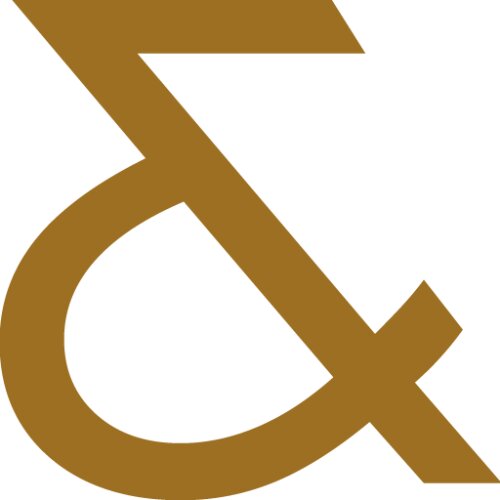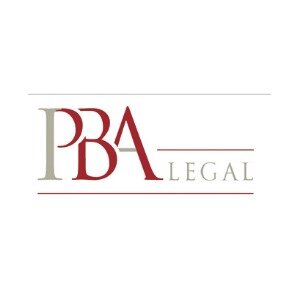Best Property Insurance Lawyers in France
Share your needs with us, get contacted by law firms.
Free. Takes 2 min.
Or refine your search by selecting a city:
List of the best lawyers in France
About Property Insurance Law in France
Property insurance in France is designed to protect property owners against potential damages arising from various risks such as fire, theft, or natural disasters. French law requires that homeowners carry home insurance to cover any damages that could affect shared areas or neighboring properties. A typical property insurance policy in France will include coverage for the physical structure, content within the home, and liability coverage. The legal framework governing property insurance is primarily overseen by the Code des Assurances, which dictates the regulations insurers must follow.
Why You May Need a Lawyer
While property insurance claims can often be straightforward, there are several situations where legal assistance might be necessary:
- Claim Denial: If an insurance company denies a claim, a lawyer can help determine whether the denial was justified and assist with any disputes.
- Complex Claims: Some claims may involve significant damage or complex scenarios that require legal expertise to ensure fair compensation.
- Disputes with Insurers: Disagreements about policy coverage or payout amounts may require legal intervention.
- Contract Review: Legal advice might be needed to review policy terms and ensure adequate coverage for specific needs.
- Negotiation: Lawyers can negotiate with insurance companies to reach settlement agreements in the client's best interest.
Local Laws Overview
French property insurance law is extensive, with several key aspects relevant to policyholders:
- Legal Obligation: Homeowners in multi-unit properties are legally required to have insurance.
- Scope of Coverage: Most policies cover fire, water damage, theft, and natural disasters, although specifics can vary.
- Tenure of Ownership: Policies often differentiate between primary residences and secondary homes in terms of coverage and cost.
- Subrogation Rights: Insurers may pursue a third party on behalf of the insured after compensation is paid, to recover costs.
- Cooling-off Period: Policyholders typically have a period during which they can cancel a policy without penalty.
Frequently Asked Questions
What is the minimum insurance required for homeowners in France?
Homeowners in France are required to have "assurance habitation," which covers civil liability and damages to the property.
Are floods covered under standard property insurance policies?
Yes, flooding is typically covered as part of the "Catastrophes Naturelles" guarantee, but the event must be officially recognized by the French government.
Can I insure a secondary home in France?
Yes, you can insure a secondary property, though coverage terms and premiums may differ from those of a primary residence.
What should I do if my insurance claim is denied?
If your claim is denied, you should first request a detailed explanation from your insurer. If disagreement persists, seek advice from a legal expert or contact the Insurance Mediator.
How can I find out what my property insurance policy covers?
Review your policy document carefully, focusing on sections detailing coverage limits, exclusions, and conditions. Contact your insurer or a legal advisor for clarification.
Is theft coverage included in all property insurance policies?
Theft coverage is often included but may require proof of forced entry or other conditions to be met for a successful claim.
What is an excess, and how does it affect claims?
An excess (or deductible) is the amount you pay out of pocket before your insurer pays a claim. It can affect the cost of premiums and claim payouts.
Can I switch my property insurance to another provider?
Yes, you can change your insurance provider. The Hamon Law allows switching policies after one year of coverage without penalties.
Does property insurance cover personal belongings outside the home?
Coverage for belongings outside the home depends on the policy terms. Some insurers offer worldwide coverage through add-ons.
Is legal assistance available with property insurance policies?
Some policies include legal protection as an additional benefit, which can help cover legal expenses related to disputes.
Additional Resources
Several resources can provide assistance with property insurance matters in France:
- La Fédération Française de l'Assurance (FFA): Offers comprehensive information on insurance policies and practices in France.
- Institut National de la Consommation (INC): Provides consumer advice related to insurance and other services.
- Insurance Ombudsman (Médiateur de l'assurance): Assists with disputes between insurers and policyholders.
- Government Websites: Websites of local prefectures often contain important information on natural disasters and related insurance matters.
Next Steps
If you require legal assistance with property insurance in France, consider the following steps:
- Identify the Issue: Clearly define your issue or legal need regarding property insurance.
- Gather Documentation: Collect all relevant documents, including your insurance policy and any correspondence with your insurer.
- Seek Legal Advice: Consult with a lawyer specializing in insurance law to explore your options and understand your rights.
- Consider Mediation: Before pursuing legal action, consider alternatives like mediation or arbitration to resolve disputes.
- File a Complaint: If necessary, file a formal complaint with the Insurance Ombudsman.
Always ensure that any legal representative you consult is certified to practice in France and has experience in property insurance law.
Lawzana helps you find the best lawyers and law firms in France through a curated and pre-screened list of qualified legal professionals. Our platform offers rankings and detailed profiles of attorneys and law firms, allowing you to compare based on practice areas, including Property Insurance, experience, and client feedback.
Each profile includes a description of the firm's areas of practice, client reviews, team members and partners, year of establishment, spoken languages, office locations, contact information, social media presence, and any published articles or resources. Most firms on our platform speak English and are experienced in both local and international legal matters.
Get a quote from top-rated law firms in France — quickly, securely, and without unnecessary hassle.
Disclaimer:
The information provided on this page is for general informational purposes only and does not constitute legal advice. While we strive to ensure the accuracy and relevance of the content, legal information may change over time, and interpretations of the law can vary. You should always consult with a qualified legal professional for advice specific to your situation.
We disclaim all liability for actions taken or not taken based on the content of this page. If you believe any information is incorrect or outdated, please contact us, and we will review and update it where appropriate.
Browse property insurance law firms by city in France
Refine your search by selecting a city.















